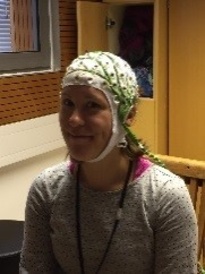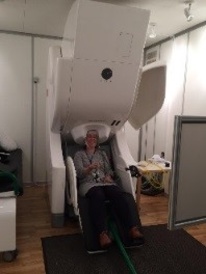Botnar project: Developing Prototype Assistive Listening Technology for Remediating Developmental Dyslexia
“Listening to rhythm in children”: examining the listening skills related to reading and how to improve these skills in children who have potential to achieve more in reading
We have previously found developmental links between children’s awareness of rhythm in speech and their progress in reading. In this project we are investigating children's progress in reaching reading and language milestones, including when supported by different educational interventions. The educational interventions include a poetry/music oral rhythm intervention and others using assistive listening technology, which has been developed to help the brain to hear rhythm patterns. The new technology filters natural speech to amplify the rhythm cues in the speech signal that are processed poorly by children with reading difficulties. We are planning to work with children with a wide range of reading abilities.
The study will run for 4 years and children will receive short, game-like tasks to assess their listening skills for computer-generated rhythmic and varied stimuli. We will also measure language, reading, memory and attention skills. These school-based assessments will occur each year in 10-15 minutes sessions, at a time of day chosen by each school. Over one school term some children will also experience additional intervention sessions. For a smaller group we would also like to measure automatic brain responses to sound and rhythm using two specialist, non-invasive methods, EEG and MEG. EEG measures electrical activity in the brain by placing sensors on the scalp. This will require a once yearly visit into Cambridge, during the summer holidays.

MEG measures changes in brain magnetic fields and is measured using a kind of helmet that lightly touches the head. This will require a couple of visits into Cambridge during the school holidays. On one of these visits we will also arrange an MRI structural scan of the brain to allow us to be able to locate the brain activity measured by the MEG.

The project may not bring any immediate benefits to your child, but we hope that the information obtained from this research will help children’s educational development and quality of life through the development of specialised training programmes and remediating technology.
The project is run by the experienced team at the Centre for Neuroscience in Education at the University of Cambridge and funded by the Swiss Botnar Foundation, who specifically support projects helping children.
People specializing in this area
Project Investigator
Staff Members
Dr Anji Wilson
Annabel Macfarlane
Fiona Gabrielczyk
Georgia Feltham
